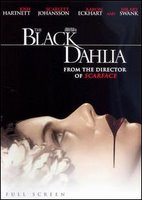Denmark
is relatively hawkish when it comes to the War on Terror—not just for a Scandinavian
country, but also by European standards. Perhaps that is why Salah Al-Din, an Islamist
terrorist mastermind has been focusing on Danish targets. A former assassin with
a grudge against Al-Din is out to kill him and his associates, but for copper
Christian Toft, the enemy of his enemy is not his friend in Brian De Palma’s Domino—yes, that Brian De Palma, which opens tomorrow in select cities.
Thanks
to a flirtatious early morning after a long night of passion, Toft leaves his gun
on his bed-stand before responding to what he and his partner Lars Hansen
assume to be a routine domestic disturbance. Instead, they run smack into Ezra
Tarzi leaving the scene of the crime. He had carved up a bodega owner, whose
flat is filled to the brim with explosives and general terrorism paraphernalia.
Alas, Tarzi gravely wounds Hansen while escaping from custody, but he does not
make a clean getaway.
Instead,
he is captured by the CIA, who are happy to aid his quest for vengeance, supplying
him with intel and further hardball motivation—as if he needed it. Tarzi
already has Al-Din’s YouTube beheading videos of his brother for that.
Initially, the Copenhagen cops erroneously believe Tarzi is still with Al-Din’s
Dahesh cell, so Toft assumes Tarzi can lead them straight to the terrorist,
which is still mostly true.
By
all reports, Domino was deeply troubled
throughout every stage of production, finally pushing De Palma to largely disavow
the film. However, it still shows flashes of the old De Palma magic. He does
his usually Hitchcockian thing, while Pino Donaggio, his regular score
composer, reaches back into his Bernard Herrmann bag of tricks—and it works
more often than you would know from the rest of the reviews so far. In fact,
the big, pivotal scene in a bullfighting stadium (the third act shifts to
Spain, probably for tax credit reasons) is genuinely vintage De Palma, up there
with the Battleship Potemkin homage
in The Untouchables.
As
Toft, Nikolaj Coster-Waldau is a serviceable lead, who looks sufficiently
convincing in his action scenes. Guy Pearce practically sleeps through the film
playing Machiavellian CIA agent Joe Martin (a case of been there, done that, if
ever there was). Søren Malling is largely under-utilized as Hansen, whereas
Paprika Steen is completely wasted as his wife Hanne. Unfortunately, Carice van
Houten is badly offkey as Toft’s unofficial new partner Alex Boe. However, Eriq
Ebouaney is a real standout as the steely Tarzi.
Domino is a grubby,
Eurotrashy film that struggles to alienate its core audience with kneejerk
moral equivalencies. Yet, it still has moments of grand suspense. It is not De
Palma’s worst film, not by a long shot (hello Passion and Redacted).
The question is whether it is a last gasp or a harbinger of a final masterwork
to come (as John Frankenheimer’s under-appreciated Dead Bang and Fourth War were
to Ronin). Sort of recommended for
fans of ticking time-bomb-thrillers, Domino
opens tomorrow (5/31) at the AMC Rolling Hills in the LA-area and releases
day-and-date on iTunes.






